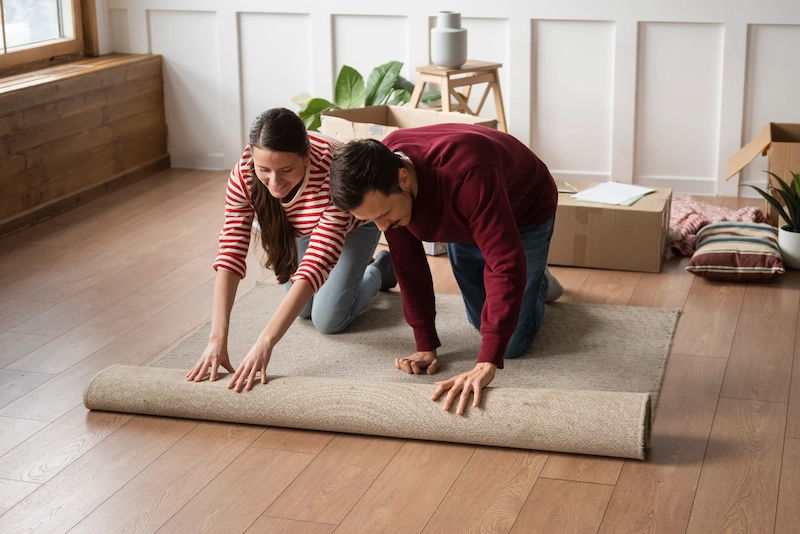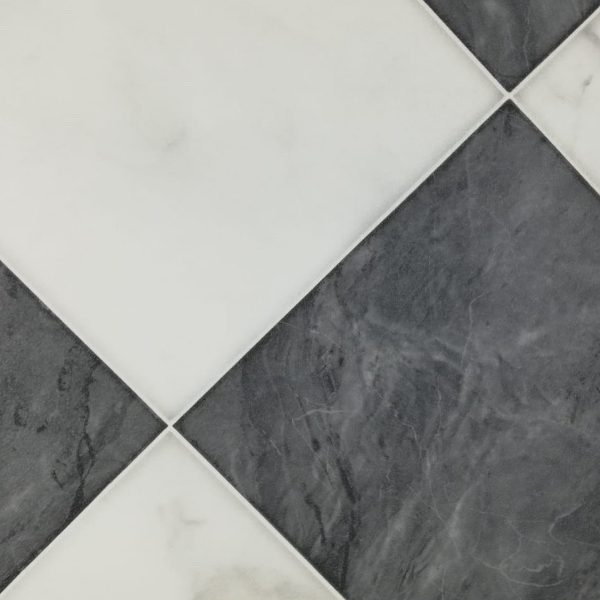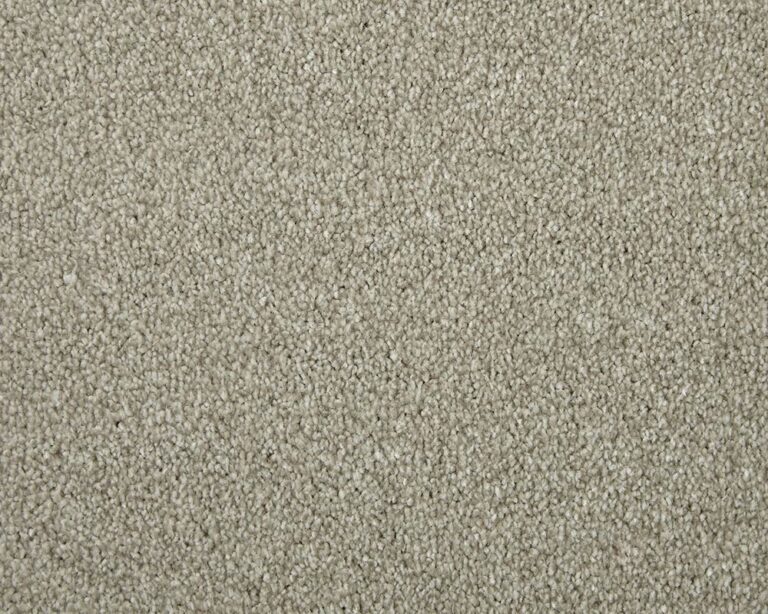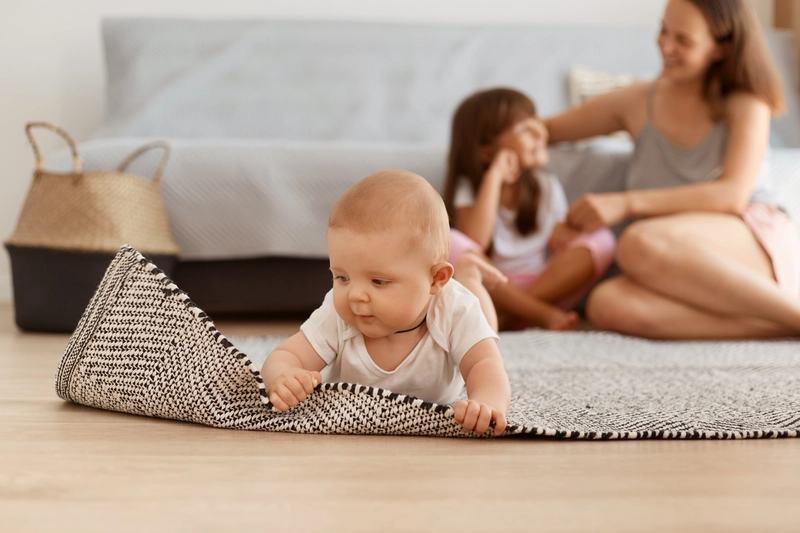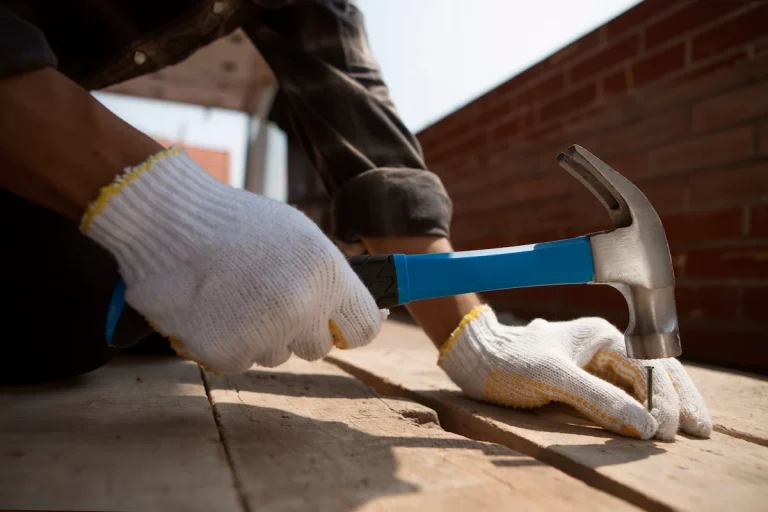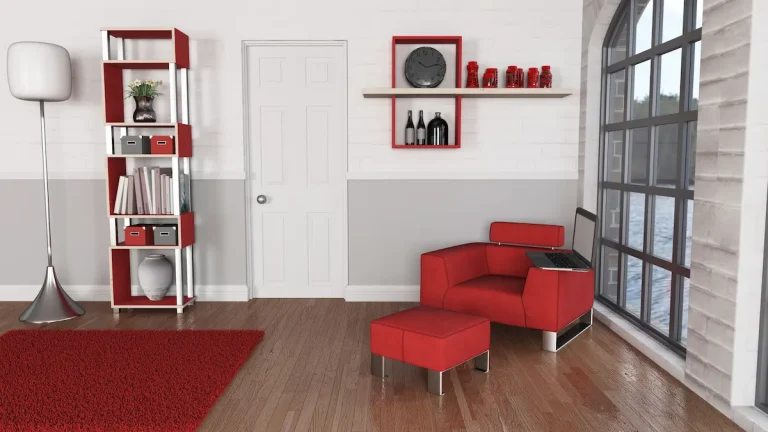As homeowners consider options for enhancing their living spaces, the selection of flooring is paramount in terms of both aesthetics and functionality. While carpet has historically been a favoured choice, an increasing number of individuals are exploring alternative flooring options that provide distinct advantages.
This article examines a range of flooring solutions, including hardwood, vinyl, and others, while outlining their respective advantages and disadvantages, maintenance requirements, and cost variations. Readers will have the opportunity to identify the flooring solution that best aligns with their style and specific needs.
Why Consider Flooring Alternatives to Carpet?
In the realm of home design, the consideration of alternatives to carpet flooring has gained significant popularity among homeowners seeking stylish options that enhance the aesthetic appeal of their living spaces while also offering practical benefits.
While carpet provides comfort and warmth, there is a wide array of durable flooring materials available that cater to diverse needs, budgets, and maintenance preferences. Increasingly, homeowners are choosing flooring options such as laminate, vinyl, and polished concrete, which not only elevate the overall design of their homes but also facilitate ease of cleaning and offer long-lasting durability.
The Different Types of Flooring Alternatives to Carpet
Exploring the various flooring alternatives to carpet can provide homeowners with an array of innovative and stylish solutions that align with their design requirements and functional preferences.
Options such as hardwood flooring, laminate flooring, and luxury vinyl tiles present distinct aesthetics and durability, making them popular selections for contemporary living spaces.
Additionally, eco-friendly choices like bamboo flooring and cork flooring address the needs of those seeking sustainable materials, while polished concrete flooring offers a sleek, modern appearance that complements diverse design themes.
1. Hardwood Flooring
Hardwood flooring is widely recognised for its timeless elegance and durability, making it a preferred choice among homeowners seeking quality flooring solutions that enhance the natural beauty of their living spaces.
When considering hardwood flooring, individuals often value the diverse options it provides, allowing for seamless integration with various interior styles, from rustic to modern. This material is renowned for its exceptional durability, with many species capable of lasting several decades when properly maintained.
Homeowners have the opportunity to select from an array of hardwood types, including oak, maple, and cherry, each offering distinct grains and colours that contribute to the overall aesthetic appeal of the environment.
Maintaining hardwood flooring is a straightforward process; regular sweeping and occasional refinishing can ensure it remains in pristine condition. Furthermore, its resilience makes it suitable for high-traffic areas, establishing it as a practical yet stylish option for those who prioritise quality in their flooring choices.
2. Laminate Flooring
Laminate flooring has emerged as a cost-effective alternative to traditional hardwood, offering aesthetically pleasing designs and ease of maintenance without sacrificing style.
This flooring option not only presents an inviting visual appeal but also addresses the practical requirements of contemporary living environments. Homeowners value the affordability of laminate flooring, as it enables them to achieve the sophisticated appearance of wood at a significantly lower cost. Its exceptional durability positions it as an ideal choice for households that include children and pets.
The diverse range of styles available ensures that there are options to accommodate various tastes and interior designs. Wear resistance is a notable characteristic, allowing laminate flooring to endure daily foot traffic without substantial wear or damage. Furthermore, the cleaning and maintenance processes are streamlined, with surfaces that can be effortlessly wiped clean—making it well-suited for busy family lifestyles.
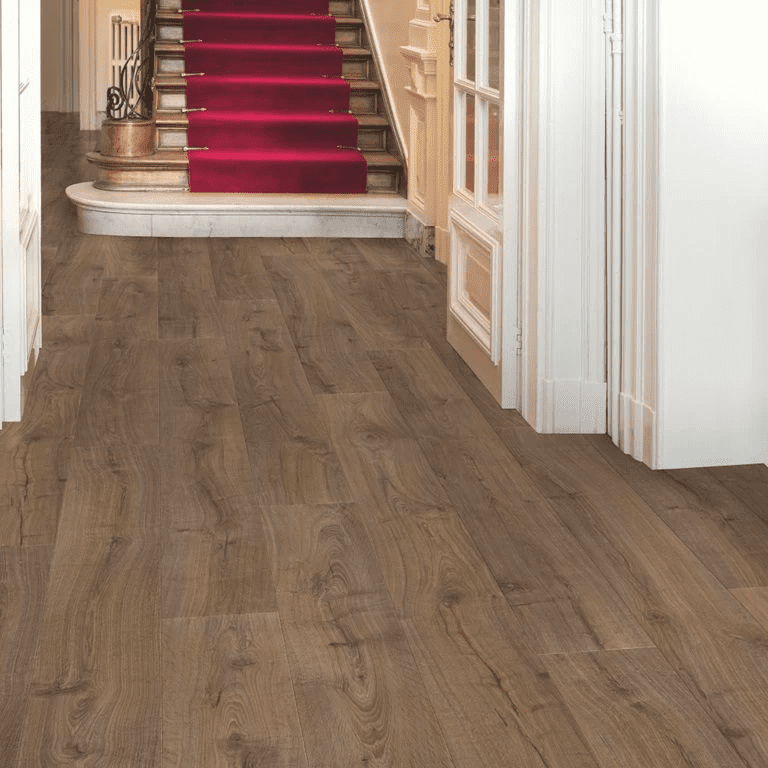
See product: Quick-Step Largo Cambridge Oak Dark
3. Vinyl Flooring
Vinyl flooring is a versatile and moisture-resistant option that appeals to homeowners seeking durable and stylish flooring solutions capable of withstanding the demands of everyday life.
This type of flooring is available in various forms, including luxury vinyl tiles and sheets, making it an attractive choice for any room within the home. Homeowners often value the hypoallergenic surfaces, which contribute to a healthier environment by reducing the presence of allergens. Additionally, the maintenance of vinyl flooring is straightforward, requiring only regular sweeping and occasional mopping for upkeep.
Its durability is particularly advantageous in high-traffic areas such as living rooms and hallways, where it effectively resists scratches and scuffs, ensuring long-lasting aesthetic appeal. Key options include:
- Luxury Vinyl Tiles (LVT): These replicate the appearance of natural materials such as wood and stone.
- Vinyl Sheets: Ideal for expansive areas, offering seamless designs.
- Moisture-Resistant Feature: This characteristic makes vinyl flooring particularly suitable for bathrooms and kitchens.
With a wide array of designs available, it is easy to find the perfect fit for any aesthetic preference.
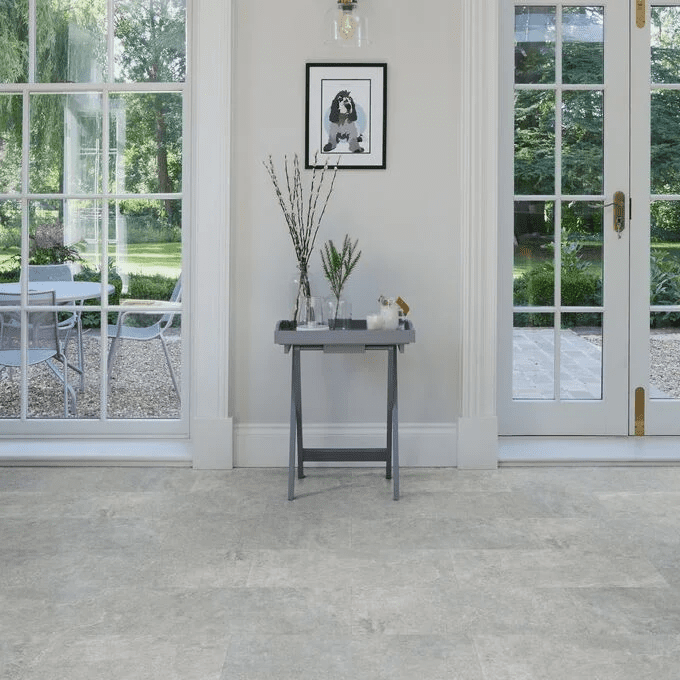
See product: Camaro Tile Soho Cement
4. Tile Flooring
Tile flooring presents a diverse array of decorative aesthetics, making it a favoured option for homeowners seeking a combination of functionality and artistic expression in their flooring choices..
For example, ceramic tiles are frequently preferred for their moisture resistance, rendering them an excellent choice for areas such as kitchens and bathrooms. Conversely, porcelain tiles are notable for their exceptional durability, capable of withstanding heavy foot traffic and resisting scratches, which makes them suitable for almost any room within the home. Additionally, stone tiles not only provide an aesthetically pleasing appearance but also offer natural variations in colour and texture, thereby enhancing the visual interest of any space.
Key considerations include:
- Moisture Resistance: Both ceramic and porcelain tiles excel in wet environments.
- Durability: Porcelain tiles are particularly long-lasting and resistant to wear.
- Ease of Cleaning: Ceramic and porcelain tiles can be easily maintained with basic cleaning solutions.
Selecting the appropriate tile ensures that homeowners can achieve a harmonious blend of beauty and practicality in their living environments.
5. Bamboo Flooring
Bamboo flooring is an eco-friendly and sustainable flooring alternative that has gained popularity due to its exceptional durability and distinctive aesthetic appeal.
In recent years, an increasing number of homeowners have opted for this material not only for its attractive appearance, which enhances indoor environments by introducing a natural element, but also for the various functional advantages it provides. A significant consideration is its impressive resistance to wear and tear, making bamboo an excellent choice for family homes where high foot traffic is a concern.
Investing in bamboo flooring not only contributes to a more sustainable planet but also ensures the longevity and aesthetic appeal of a home’s interior.
6. Cork Flooring
Cork flooring is recognised for its comfort, style, and distinctive texture, offering a warm and inviting feel underfoot. This makes it an excellent choice for living rooms and family areas.
Plus its visual appeal, cork flooring presents numerous advantages that render it a prudent investment for homeowners. One of its most notable benefits is its hypoallergenic nature, as it effectively reduces allergens such as dust and mould, owing to its innate ability to resist moisture and pests. Additionally, this flooring can enhance energy-efficiency when paired with underfloor heating, providing a warm and inviting environment in any room.
The insulation properties of cork contribute significantly to energy efficiency, helping to maintain warmer temperatures in winter and cooler conditions in summer, which ultimately leads to reduced heating and cooling costs. Furthermore, cork fits well into comfort durability needs by ensuring an enduring yet soft touch underfoot. The maintenance of cork flooring is relatively straightforward, requiring only a damp mop and a mild cleaner, thus saving time and effort compared to more labour-intensive flooring options.
7. Concrete Flooring
Concrete flooring, particularly polished concrete, has emerged as a contemporary flooring solution recognised for its exceptional durability and modern aesthetic, rendering it a sought-after choice for both residential and commercial environments. This trend is bolstered by the popularity of microcement flooring, which offers similar benefits with a finer finish.
Maintenance is notably simplified due to the non-porous nature of polished concrete, which necessitates less frequent cleaning and fewer harsh chemicals to retain its shine. Furthermore, the versatility in design allows for a wide array of finishes, colours, and patterns that can complement any interior style, establishing polished concrete as a flexible choice for numerous settings. When considering floor installation with polished concrete or microcement, installation tips should be followed to achieve the best results.
With the advancement of flooring technologies, the process of achieving an optimal finish has become more accessible, thereby enhancing the overall appeal and longevity of concrete flooring. Options such as resin flooring and Flexflooring offer additional benefits for those seeking long-lasting solutions in flooring styles.
- Durable under heavy use
- Minimal maintenance requirements
- Variety of design options
In summary, polished concrete not only enhances the aesthetic quality of spaces but also provides practical advantages that make it a worthwhile investment.
Pros and Cons of Each Flooring Alternative
It is crucial for homeowners to evaluate the advantages and disadvantages of each flooring alternative to carpet. This thorough assessment enables them to make informed decisions that align with their specific needs, budget constraints, and lifestyle preferences, thereby ensuring the selection of flooring that effectively complements their home.
Hardwood Flooring
Hardwood flooring is widely recognised for its durability and timeless aesthetic appeal; however, it necessitates regular maintenance and often incurs a higher initial investment compared to alternative flooring options. This type of flooring typically has a lifespan of 20 to 30 years or even longer with appropriate care, making it a prudent investment for those seeking to enhance their home’s visual appeal.
Pros:
- High durability
- Adds value to the home
- Versatile design options
- Improves indoor air quality
Cons:
- Higher initial costs
- Susceptibility to scratches and dents
- Requires periodic refinishing
The maintenance requirements, while essential, often consist of straightforward practices such as regular sweeping and occasional refinishing, making it a manageable choice for many homeowners.
Laminate Flooring
Laminate flooring presents an affordable and low-maintenance alternative that mimics the appearance of hardwood; however, it may not offer the same level of durability and longevity.
This type of flooring has gained traction among homeowners who are seeking budget-friendly options without compromising on aesthetic appeal. Its ease of installation makes it particularly appealing, with many individuals opting for do-it-yourself (DIY) projects rather than engaging professional services.
Advantages:
- It is cost-effective compared to traditional hardwood.
- Maintenance is minimal, generally requiring only sweeping and occasional damp mopping.
- There is a wide variety of styles and finishes available, allowing for customisation to complement various home designs.
Nevertheless, there are potential drawbacks worth considering. Laminate flooring can be susceptible to scratches and moisture damage, which may render it less suitable for high-traffic areas or environments with elevated humidity levels. This trade-off between affordability and long-term durability is an important factor to consider when selecting flooring options.
Vinyl Flooring
Vinyl flooring demonstrates exceptional moisture resistance and comfort, making it a practical choice for high-traffic areas and environments susceptible to spills. However, it may lack the high-end aesthetic appeal typically associated with hardwood or tiles.
When evaluating flooring options, vinyl provides a combination of durability and ease of maintenance that is appealing to both homeowners and business owners. Its design versatility allows for a wide range of styles that can mimic natural materials while offering a softer underfoot experience.
Potential buyers should consider several drawbacks:
- Environmental Concerns: Vinyl is derived from petroleum products, which raises important sustainability questions.
- Potential for Scratching: Although it is moisture-resistant, the surface can be vulnerable to scratches, particularly in high-traffic areas.
- Installation Challenges: Proper installation is essential to avoid issues such as warping or bubbling.
In conclusion, while vinyl flooring presents an attractive option for numerous applications, assessing these advantages and disadvantages is crucial to ensuring it aligns with specific requirements.
Tile Flooring
Tile flooring is renowned for its durability and moisture resistance, making it an excellent choice for areas such as kitchens and bathrooms. However, it is important to note that tiles can feel cold underfoot and may be susceptible to cracking if not installed correctly.
When selecting tile flooring, it is essential to consider the maintenance requirements associated with it. While tiles are relatively easy to clean, regular maintenance of the grout is necessary to prevent staining and mould accumulation. Furthermore, the inherent hardness of tiles can make them less comfortable for standing for extended periods, particularly in areas where individuals are likely to spend considerable time.
Benefits of tile flooring:
- Durability against wear and tear
- Resistance to water damage
- Availability in a variety of styles and colours
Conversely, it is important to recognise that the initial investment for tile installation may be higher compared to other flooring options, and improper installation can result in costly repairs over time.
Bamboo Flooring
Bamboo flooring presents an environmentally friendly alternative characterised by commendable durability; however, it necessitates specific maintenance practices to ensure its optimal appearance over time.
When evaluating bamboo flooring, it is essential to balance its sustainability with the maintenance requirements it entails. This flooring option, sourced from rapidly renewable bamboo grasses, significantly mitigates environmental impact compared to conventional hardwoods. Its performance can vary based on factors such as quality and installation techniques. While bamboo typically exhibits moisture resistance, it is susceptible to scratches and dents, thereby requiring careful cleaning and protective measures. For those considering affordable solutions, bamboo can be an excellent alternative to more costly high-quality flooring options.
Advantages include:
- Renewability and a low carbon footprint
- Natural beauty and distinctive patterns
- Durability comparable to hardwood
Disadvantages include:
- Potential for expansion and contraction in response to humidity
- Requires regular maintenance to preserve its sheen
- Variability in quality across different brands
These considerations enhance its overall appeal, making bamboo flooring a compelling option for environmentally conscious homeowners who value design flexibility and are looking for stylish alternatives.
Cork Flooring
Cork flooring offers exceptional comfort and hypoallergenic properties; however, its susceptibility to scratches and moisture may restrict its applicability in high-traffic environments like the living room.
This versatile material is frequently selected for residential spaces due to its warmth and resilience underfoot, creating a cosy atmosphere that is gentle on the joints. Plus, being hypoallergenic, cork serves as a natural insulator, helping to maintain a consistent ambient temperature throughout the seasons. It is important to consider its vulnerabilities in specific high-traffic or damp areas, especially when seeking comfort style solutions.
- Scratch Resistance: While cork is durable, it may exhibit signs of wear over time, potentially diminishing its aesthetic appeal.
- Moisture Sensitivity: Prolonged exposure to water can promote mould growth, rendering it a less suitable choice for bathrooms or basements.
By carefully assessing these factors, and considering expert advice, individuals can make informed decisions that align with their specific requirements.
Concrete Flooring
Concrete flooring is highly durable and can be customised using advanced flooring technologies like Flexflooring; however, it may feel cold underfoot and necessitates sealing to maintain its appearance.
This type of flooring presents numerous benefits that make it an appealing choice for many homeowners. Its versatility allows it to replicate the appearance of other materials, such as wood or tiles, providing a variety of aesthetic options to complement any interior design.
Pros:
- Concrete flooring exhibits resistance to scratches, stains, and spills, rendering it a practical option for busy households.
- Its maintenance is relatively straightforward, typically requiring only occasional cleaning and resealing.
Cons:
- Conversely, direct contact with concrete flooring can be uncomfortable in colder climates.
- Additionally, if not properly treated, it may crack over time due to settling or temperature fluctuations.
A careful assessment of these factors, along with renovation tips, will assist in determining whether this flooring option aligns with your lifestyle and aesthetic objectives.
Which Flooring Alternative Is Best for My Home Design?
Determining the most suitable flooring option for a home requires a comprehensive evaluation of several factors, including lifestyle, budget, and the specific requirements of each room. This approach ensures that the selected flooring not only meets functional needs but also enhances the aesthetic value of the space.
How to Choose the Right Flooring Alternative
Choosing the appropriate flooring option for your needs requires a careful evaluation of your lifestyle, preferences, and practical considerations. This process is essential to ensure that you make an informed decision that aligns with your living circumstances.
The Cost Differences between Carpet and Flooring Alternatives
Analysing the cost differences between carpet and various flooring alternatives is essential for effective budget management during renovations.
Each flooring option presents a diverse range of prices, which are influenced by factors such as materials, installation, and ongoing maintenance requirements.
Conclusion: Is Carpet the Best Choice for Your Home?
While carpet provides distinct comfort and warmth, evaluating flooring alternatives reveals a broad spectrum of options that address both practical needs and design preferences. It is essential to assess which choice aligns with one’s home improvement objectives.
Homeowners often prioritise factors such as durability, maintenance, and style when making flooring decisions. One of the considerable advantages of carpet is its comfort, offering a soft surface underfoot, which is particularly beneficial in areas where families congregate. Conversely, alternatives such as hardwood or laminate flooring frequently present benefits such as easier cleaning and the potential for a longer lifespan.
- Carpet’s insulation properties can enhance energy efficiency.
- Hardwood or tile can increase a home’s resale value.
Consequently, it is imperative to weigh the practical benefits against personal preferences, ensuring that the selected flooring not only fulfils aesthetic aspirations but also accommodates individual lifestyle requirements.
Whether you’re looking for the timeless elegance of hardwood, the durability of vinyl, or the modern appeal of tile, there’s an option to suit every style and budget. Choosing the right flooring can transform your home or business, offering a balance of functionality and beauty.
At TEKA Flooring, we specialise in providing high-quality flooring materials and expert fitting services to help bring your vision to life. Our team is here to assist you in selecting the perfect flooring solution tailored to your needs.
Ready to upgrade your space? Contact TEKA Flooring today for personalized advice and professional installation. Let’s create a foundation you’ll love for years to come
Read also:


























